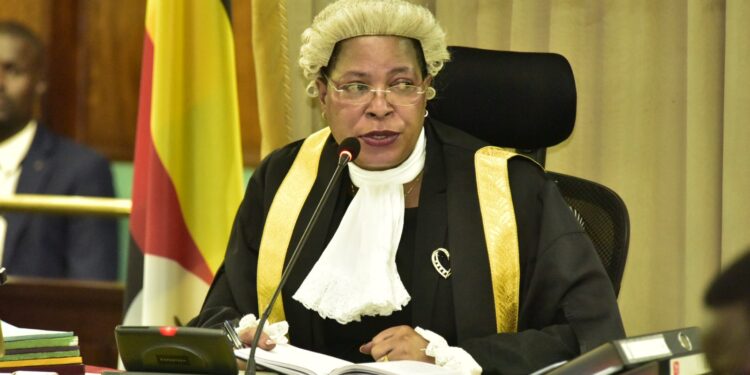The ongoing debate over the Ugandan parliamentary regional sittings brings to light a critical issue concerning the prioritization of public funds. Joel Ssenyonyi, the Leader of the Opposition, has rightfully criticized these sittings, arguing that the 20 billion Ugandan shillings allocated for them is a misallocation of resources. His stance reflects a growing concern among many Ugandans that these regional sessions are more about political theater than about addressing the real, pressing issues facing the country.
Ssenyonyi’s argument is compelling: in a nation where hospitals are underfunded, schools are struggling, and young medical professionals are underpaid and unsupported, spending billions on parliamentary tours seems not only extravagant but also deeply irresponsible. The idea that these regional sittings will somehow solve the everyday problems of Ugandans is difficult to accept, especially when the country’s healthcare and education systems are in such dire need of investment.
It is particularly disappointing that the recent Gulu House sitting, which was initially aimed at addressing issues specific to Northern Uganda, instead turned into a platform to undermine the opposition leadership in Parliament through Honorable Richard Lumu’s bill. This shift in focus failed to bring any tangible impact on the challenges facing Northern Uganda, making it clear that these sessions are being misused for political maneuvering rather than addressing regional needs.
President Museveni’s suggestion that those who have sponsored medical internees’ education should also facilitate their internships underscores the government’s admission that it is unable or unwilling to adequately fund essential services. This proposal further highlights the disconnect between government spending priorities and the actual needs of the population. If the government can afford to spend billions on regional sittings, it should be able to find the funds necessary to support healthcare workers, educators, and other critical sectors.
In essence, these regional sittings appear to be more about maintaining political appearances and less about creating tangible improvements in the lives of Ugandans. The funds allocated for these events could indeed be better spent on essential services that would have a direct and lasting impact on people’s lives. In a country where many citizens struggle to access basic services, the government’s decision to prioritize political activities over genuine development needs is not only wasteful but also deeply disappointing.
Ugandans deserve better. They deserve a government that puts their needs first, invests in their health and education, and works tirelessly to improve their quality of life. Unfortunately, these regional sittings seem to be a step in the wrong direction, away from the real issues that matter most to the people.
At least not towards 2026…
We could afford to forgo our feelings as a public feeling betrayed and deserted by those we entrusted with the mandate to protect and plan for us. But what about your benefactor, the man who picked you from the impending ruins of FDC- Museveni? Aware that he will seek to stretch his reign to a remarkable 45 years, Anitah Among should have been the first person to consciously know that the anger of the suffering masses could only be averted through acting consciously and carefully or get ready to bear the consequences. The 2026 general elections is anticipated to be a very complex challenge for the ruling side pushing to keep power. The bad roads in the capital and outside, the exorbitant tax levies- EFRIS, the kasasiro tragedy in Kitezi, the pregnant corruption in government, youth unemployment are key issues those in higher authority should be working tooth and nail to address to soften the agitated hearts of Ugandans. Unfortunately, Among and company seem not to care, after all, what can these poor hungry people do? As if they are not weary of what recently happened in Kenya and Bangladesh.In a nutshell, the saying that a man who doesn’t care about his neighbour’s house that has caught fire is as dense as a woman who sets her husband’s house on fire for revenge forgetting that even her children will have no shelter. We may chose to act adamant but let’s all remember that we shall perish together.
The writer is a patriot, Nationalist and Social Observer
Do you have a story in your community or an opinion to share with us: Email us at editorial@watchdoguganda.com













